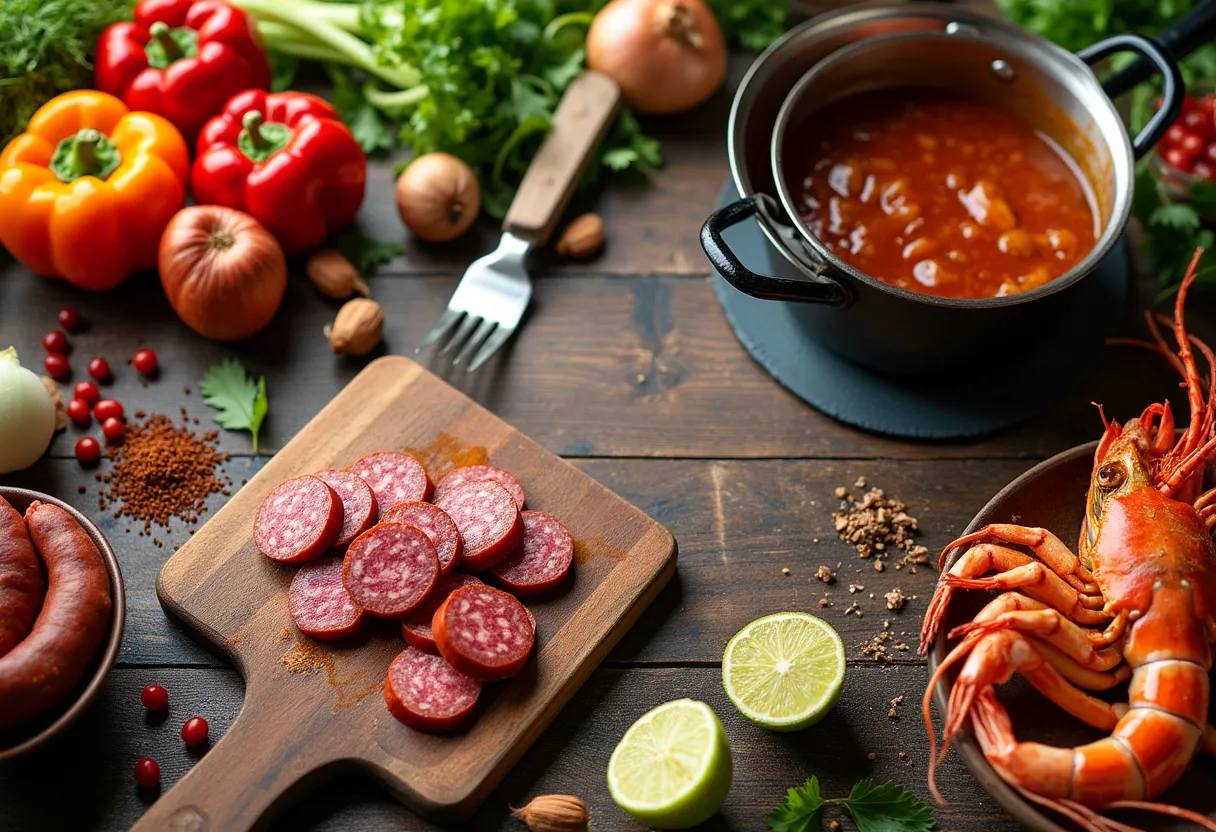
Unlocking the Secrets of Authentic Cajun and Creole Cuisine: A Deep Dive into Traditional Ingredients and Techniques
Published on 9/21/2024
Ethan Walker • 9/21/2024
As someone who has grown up in the vibrant culinary landscape of New Orleans, I find immense joy in sharing the secrets of Cajun cuisine and Creole cuisine with both budding chefs and seasoned cooks. These rich culinary traditions are not just about tantalizing flavors but a reflection of our cultural tapestry here in the South.
The Roots of Southern Flavor
Understanding the differences and similarities between Cajun and Creole cooking requires a dive into their histories. Cajun cuisine originates from French-speaking Acadians who settled in the swamps and bayous of Louisiana in the 18th century. Their cooking is known for its bold, hearty flavors, embracing what was available locally. On the other hand, Creole cuisine reflects the diverse cultural influences of Spanish, African, French, and Native American traditions found in urban New Orleans.
Key Ingredients and Their Role in Cajun and Creole Cooking
Both cuisines elevate simple, local ingredients to an art form. Here's a closer examination of some crucial components:
- Holy Trinity: A mix of onions, bell peppers, and celery forms the flavor base for countless dishes.
- Andouille Sausage: A smoked pork sausage essential in dishes like gumbo and jambalaya.
- Okra: Often used in gumbo, this vegetable acts as a thickening agent.
- Seasoning: A unique blend of spices including cayenne pepper, paprika, and thyme is vital to achieving the signature bold flavors.
- Seafood: With proximity to the Gulf, fresh shrimp, crab, and oysters are staples in many dishes.
Fundamental Techniques: From Roux to Rice
Mastering these cuisines is as much about technique as it is about ingredients. Here’s how to get it right:
- Roux: This foundational mix of flour and butter is cooked to various shades, from light to dark, to add nuanced flavor and depth.
- Slow Cooking: Many dishes are better the longer they simmer, allowing flavors to meld over time.
- Rice Cooking: Perfectly cooked rice is a crucial companion to dishes like étouffée and jambalaya, achieved by balancing liquid and cooking time.
My Personal Connection
These culinary traditions are more than recipes to me; they are memories passed down through family gatherings. My grandmother taught me the essence of these dishes lies not just in the right ingredients and techniques, but in the joy of sharing them with others.
Whether you're preparing a traditional gumbo, celebrating a lively jazz brunch with authentic beignets, or exploring the vibrant kick of étouffée, you'll find that each dish tells a story. I hope this deep dive inspires you to bring a bit of Southern hospitality into your own kitchen, preserving these beloved traditions for future generations.
Ethan Walker
Senior Chef and Cultural Food Historian | I've been cooking
Ethan was born and raised in the culturally rich city of New Orleans, where food is woven into the fabric of life. His family has passed down Cajun and Creole recipes for generations, and Ethan became passionate about preserving these culinary traditions. After working in various restaurants, he eventually opened his own eatery, which became known for its authentic gumbo, jambalaya, and beignets. Now semi-retired, Ethan teaches cooking classes and writes about the history of Southern cuisine. His mission is to ensure that traditional Cajun and Creole cooking remains vibrant for future generations.